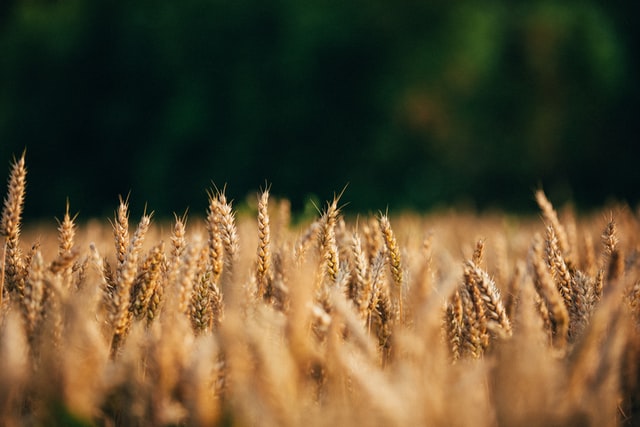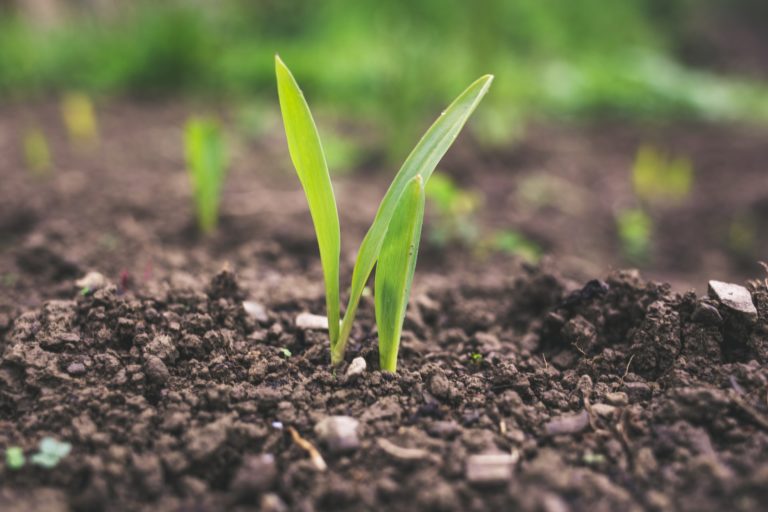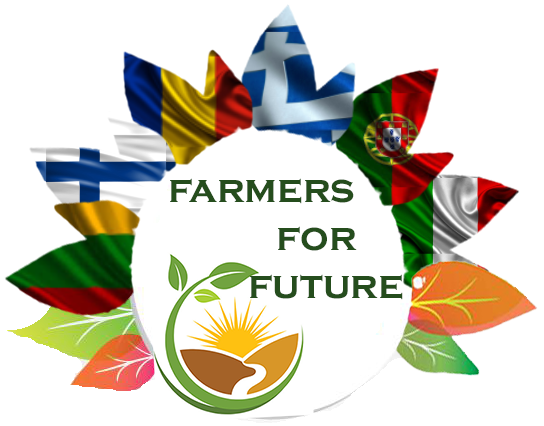About Project
Innovative agricultural techniques to boost entrepreneurial skills of future farmers
Farmers for Future
Project Title: Innovative agricultural techniques to boost entrepreneurial skills of future farmers
Project Acronym: Farmers for future
Project Code: 2020-1-IT01-KA202-008505
Project Start Date: 2020-09-01
Project End Date: 2023-12-31



SUMMARY
“Innovative agricultural techniques to boost entrepreneurial skills of future farmers”, our title explains how ambitious is our project: we want to work on basic skills to boost entrepreneurial education. We believe that providing appropriate courses for our target group means allowing them to escape from the low skills trap, but also empowering them to contribute to their own lives, families and communities. In fact, the profile of many of our students is exactly that of future European citizens with low skills and few opportunities to reach an adequate life standard for our modern and quickly changing societies.
Our project is based on a learning by working methodology and it will be organised into 6 LTT meetings. Participants will have the chance to learn step by step all the relevant phases to plan, do, check and implement a successful start-up connected to agriculture and farming. There will be 6 modules developed during this project. In each module participants will learn and apply strategies to become future smart farmers. Participants will be able to make creative, sustainable and inclusive choices that will protect and enrich the environment, the quality of the air and soil, make profit and make their society a better place to live in. The project and the LTT activities will be an irreplaceable occasion for the improvement for teachers and organizations as well, every participant will show their best practices and learn from the others.
The project activities that we will carry out will be organized in the following modules:
- What’s my soil, my air, my territory like?
- How can I preserve the environment in agriculture and animal farming?
- What is innovation in agriculture and animal farming?
- How can I start a successful and innovative business in agriculture or animal farming?
- How can I control, manage, innovate, improve business?
- Our Start up!
For each module participants will take part to living labs where they will study and put into practice their know how in a creative way, thanks to the adopted methodologies: problem solving, cooperative learning, learning by working, learning by experiencing. These activities will help them improve their basic skills in literacy, numeracy and digital skills.
Learning and learning how to learn will be encouraged in all the project steps because we want that our students understand that this is a fundamental step for success: in the agricultural field much of the knowledge is passed from father to son only by experience; for this reason, in some contexts, there has been no innovation for years. We want our students to understand that past experiences are really important and belong to everybody’s culture but studies, research and innovation are important as well and they can help them to innovate this sector and improve their business. In other words, our challenge is to let them do very old things in a very new way.
We are planning 3 transnational meetings and 6 LTT meetings. Transnational meetings will be held at the beginning, in the middle and at the end of the project, mostly to organize, monitor, report and disseminate project results. LTT meetings will be distributed during the project to implement the project itself and carry out the planned activities. They will be a key step of our project because students will work together to solve problems, find strategies and check results. A number of 6 students and 2 teachers will visit each partner school. At least 20 students from the host school will take part in the activities when the school hosts the meeting. Each mobility will be held in one of the participating countries. In every mobility, hosting schools will manage to let students learn by working, find associated partners where students will have the chance to see and put into practice what they are learning and to boost the development of ideas that will one day become real working chances for the students that participated to the project, like start ups in the agricultural field.
Monitoring and evaluation will be a continuous process going on throughout the project and will be carried out both on a formal and informal level and in the form of self and peer assessment. The planned results of our project are: the project web site translated into the 6 project languages and a related newsletter to be regularly sent to stakeholders and associated partners, the creation of 6 start up, the implementation of innovative farming experiments in every partner school and the production of products that will reach thousands of families across Europe.
This project will have a big impact on participants, organizations, stakeholders and communities in general. Our products will reach families with explanations and public events will be organised to disseminate the project activities and results. Participants will have practical competences that will help them not only to find a job but to make their way into the society.
PRIORITIES
Our project is based on one horizontal priority and two vet priorities. We have chosen to focus on key competences and basic skills for several reasons all very relevant for our schools.
The PISA and PIAAC results have shown an alarming lack of basic skills across Europe, one in five has problems with basic reading and numeracy; one in four has very low digital skills. Providing adequate and appropriate courses for this target group does not only mean allowing them to escape from the low skills trap, but also to empower them to contribute to their own lives, families and communities. In fact, the profile of many of our students is exactely that of future European citizens with low skills and few opportunities to reach an adequate life standard for our modern and quickly changing societies.
This is especially true for the increasing numbers of disadvantaged people, who need a diverse range of skills to live in dignity with and contribute fully to their country. All partner schools have a rate of immigrants and students facing different forms of disadvantage among their students and this project will help their process of inclusion in our society. For all the reasons above, a more comprehensive approach to learning should be adopted. Following the Council Recommendation of 18th May 2018 on key competences and lifelong learning people need the right set of skills and competences to sustain current standards of living, support high rates of employment, and foster social cohesion in the light of tomorrow’s society and world of work.
Investing in basic skills has become more relevant than ever. High quality education consists in giving students instruments to progress and success in the world of work and in life in general. Skills like problem solving, critical thinking, ability to cooperate, creativity, computational thinking and self-regulation are vital in our quickly changing society. They allow students to make what they have learned work quickly in the real world and let them generate new ideas, products, knowledge. In the same recommendation is also written that future European citizens should acquire the knowledge and skills needed to promote sustainable development including sustainable lifestyles, human rights, gender equality and in general appreciation of cultural diversity.
The Eu priorities for VET include that it is a priority to strengthen key competences in VET curricula and provide more effective opportunities to acquire and develop those skills and competences through initial and continuing VET. All this considered, a work-based project which mixes informal learning and work-based learning experiences, will introduce our students into the world of work and will give them more opportunities to be socially and professionally successful even if they come from disadvantaged families or have reached low academic levels. In other words, this project will help them to shorten the gap between them and other students who have had an “easier” career at school or in life in general and will provide them with new knowledge and skills able to help them not only find a job but also become self-made men/women as we want to inspire them with entrepreneurial skills.
Another important aspect of the project will consist in the development of partnerships aimed at promoting and activating working-based learning experiences. Our students do not like sitting in their classrooms for long hours, paying attention to traditional lessons, even if modern digital technological devices help them. They prefer learning by doing experiences, which are more suitable to their learning styles and help them to focus and acquire competences in a practical way.
Before and during the project, partner schools will find partnerships with stakeholders in the local area, young farmers who want to try and develop innovative farming techniques, institutions able to create work-based experiences. In this way we will also reach another important objective of our project: we will make school more attractive for our students and this will improve their academic levels and alsoprevent early school living which is a problem that affects our schools seriously.
CONTEX & OBJECTIVES
Our organizations are 6 VET schools around Europe, we have common problems but most of all we share the same values and want to work and experiment to find solutions to those problems and help our students to have a better life. All participating schools are VET schools; whose students face serious problems such as:
- the lack of perspectives for the future
- the lack of a real and effective connection between schools and the world of work which enables students to be ready for working after they finish school
- the sense of disillusionment towards the utility of instruction and building in general
- the low academic levels
- the lack of opportunities to really improve in life in order to reach a better life standard
- the problems due to the lack of inclusion for disadvantaged or immigrant groups
All partners have decided to face these problems together in order to develop our idea of agriculture which is inclusive, ethic, sustainable but which will also help our students and all the persons involved to make a career in the field of farming.
Moreover, we want to develop our students’ life skills like critical thinking, creativity, problem solving and competences like mastering ICT, improving in foreign languages, acquiring professional/vocational skills, learning how to cooperate and build networks. All of the schools participating in the project have a rate of disadvantaged students and we want to devote attention also to these students who need to be included into our societies. Inclusion will be encouraged through their participation and active involvement.
Another aspect is the integration of the project activities into the everyday activities and curricula. This gives our project a strong impact because participants won’t perceive the project activities as extra-work but they will make school more attractive both for students and for teachers
NEEDS & TARGET GROUP
The project idea has originated by the need of our organisations to strengthen international cooperation in the agrarian department and to strengthen cooperation with different actors in the agricultural field. In fact, even if our territories have a long and important history linked to agriculture this sector does not seem to be innovating very much. In addition to that, the students who study in the agrarian department are often very unmotivated and their academic results are low. We consider this a problem for several reasons: first because the production of high quality food is a strategic sector of our economy, secondly because this sector needs to be renovated to become more sustainable, more technologically advanced and more eco-friendly, thirdly because agriculture should be seen as a source for career and not as a last chance when your academic performances are bad.
The target group of our project is students from 15 to 19, who need to learn and to practice in their field of study. In fact, we want to give our students not only competences to face the challenges of a very quickly changing economy but also the skills to choose what is the most inclusive, sustainable, efficient and economically advantageous form of agriculture in order to make them able to choose and to support them effectively. This is an inclusive project and we will foster the participation of students with a background of disadvantage (bullying, behavioral problems, various forms of handicaps, migration background, economical problems, gender differences…)
Finally, the project should be carried out transnationally to add value to the project itself. Our organizations want to share their best practices and learn from each other. Every partner will give their own unique contribution to the project:
- Finland: their experience in organic farming
- Lithuania: their experience in precision agriculture
- Portugal: their experience in hydroponic and aquaponics
